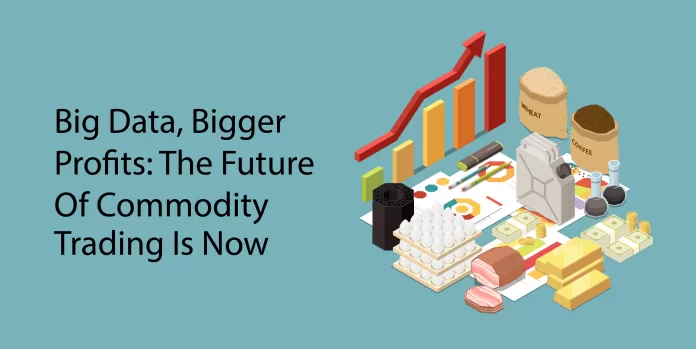Importance of big data in commodity trading
The significance of big data in enhancing commodity trading strategies is a crucial topic in contemporary financial markets. Big data, denoting extremely large datasets uncovering patterns in human behaviour and interactions, has found applications across various industries, particularly in the financial market.
To unravel the complexities of big data, it is essential to grasp its three fundamental attributes: volume, velocity, and variety.
The sheer magnitude of information processed daily affirms that big data truly lives up to its name. The rapid rate at which this data is generated is another defining aspect, necessitating prompt processing and analysis. The variety encompasses structured, semi-structured, and unstructured data, holding valuable insights. Data collection predominantly transpires through digital channels, encompassing social media, digital images, videos, machine data, and transactional data.
Transformation in trading
The traditional landscape of commodity trading is undergoing a significant transformation with the integration of big data. In the past, when traders often relied on intuition or personal experience, decision-making is now anchored in concrete, data-driven insights. The abundance of data empowers traders to forecast trends and respond appropriately, resulting in enhanced trade performance.
A closer look at big data’s role further enriches our comprehension of this transformative phenomenon. The ability of big data in forecasting and prediction is truly remarkable. Traders meticulously analyse intricate data strands, decode patterns, and foresee market trends. This proficiency allows them to precisely predict commodity prices and demand, optimizing their trading decisions.
Know: Mastering Commodity Trading
Risk is an inherent factor in trading, yet big data serves as a balm by providing tools for robust risk management. It facilitates the creation of predictive models, empowering traders to hedge risks and diversify their portfolios. Additionally, big data optimizes the supply chain by pinpointing bottlenecks, facilitating efficient resource allocation, and minimizing waste in the trading process.
Advantages of big data in commodity trading
Leveraging big data in commodity trading strategies brings forth numerous advantages.
By delving into data analysis, traders can customize their investment decisions, elevating their proficiency in selecting lucrative trades. The subsequent increase in successful trades bolsters profitability, fortifying the trader’s financial standing. Furthermore, big data enhances market intelligence, enabling traders to monitor real-time market trends and make well-informed decisions on the fly.
Effectively harnessing big data is paramount, and technologies such as Artificial Intelligence and machine learning play a pivotal role in expediting data analysis and interpretation. Advanced software tools navigate through extensive datasets, identifying pertinent information and presenting actionable insights. The strategy should prioritise data quality over quantity, underscoring the importance of data relevancy and accuracy.
Furthermore, big data should complement traditional trading strategies rather than supplanting them. Integrating data insights into existing frameworks enhances their resilience and optimizes overall trading outcomes.


